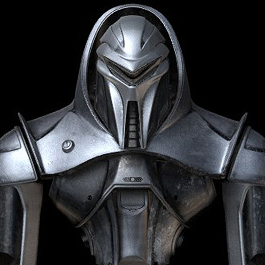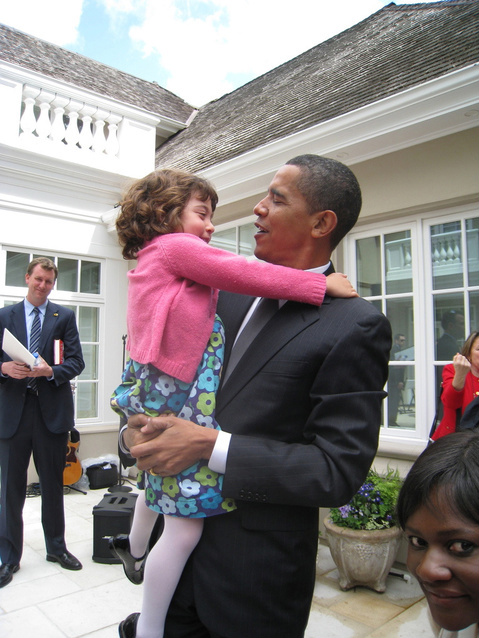So I was guest lecturing Friday night in Bloomfield NJ at the home of Jessica Rasp’s lovely Grandma (she has a regular series about once a month where about 25 folks show up to hear a Buddhist lecture and discussion), and I missed the premier of the final season of Battlestar Galactica.
I was pretty bummed about missing it, and about twenty minutes after the show ended, I got a one line text from the I.D. Project‘s very own GZA:
FRACK, I Thought.


For those of you who don’t know, the Cylons are a race of robots who have declared war upon and decimated most of the human race, leaving only a fleet of about 40,000 human survivors who are traveling the galaxy trying to find a lost and mythical home that their polytheistic, zodiac-influenced scriptures refer to as “Earth.” Some Cylons, the oldschool ones, look like the metallic dude on the left. But there are 12 models, new edition models, that look and think and philosophize and feel and worship and yes even…love…like humans. Scifi Identity Politics are majorly in effect on this show, which, along with some gritty interpersonal drama and some surprisingly nuanced political and spiritual allegory make the show generally an important work on multiple levels (Yes, I did just say that). At the close of last season, we arrived at a total of 11 cast members who have been revealed as Cylons, and presumably the main suspense point for the show’s final season is “Who is the final Cylon?” And it might as well be our hopeful 44th El Presidente. After all, doesn’t he seem just a bit superhuman to you? Wink, wink. There already is one African American Cylon (fulfilling TV’s Benetton-like quotas), but he gets about as much screen time and character development as a stapler would (yet more proof of Obama’s prescient oratory that we haven’t addressed race nearly as much as we need to, on Earth as well as on Cylon baseships).
On a related note, I have always been a fan of the SciFi genre, which might seem like a weird thing for someone who’s trying to learn how to dwell more and more in the present moment. It all started my Freshman year of high school—when I was too short, too shy and too unschooled at The Art of 9th Grade Popularity (see the collected works of Lao Tzu) to crack the walnut of high school cliques—that me and my Dad would spend Saturday nights with takeout chinese marveling at the lovely technobabble and strange astrophysical melodrama of Star Trek: The Next Generation. We invited others to join us, but no one was down.

I know Jean Luc, I know.
Since then favorites have included Bladerunner (of course), Star Wars (though not maniacally), and Serenity/Firefly, both the shortlived tv show and the excellent movie, neither of which got the attention they ever deserved.

I think the SciFi genre allows us to explore relationships in a visionary setup, and therefore is a perfect template to parallel and examine political, cultural, spiritual, and personal ideals in an otherworldly landscape. The best scifi creates an internally coherent narrative universe, but one which reflects back upon our own. The worst scifi does this, and tells you that it’s doing this. The very best scifi does it so much that it becomes a caricature of itself, like Star Trek: TNG.
I don’t see why a Buddhist can’t get down with that kind of fantasy. So I will declare it right now: it is my intention, at some point, to write a work of Buddhist inspired Science Fiction, either for the screen, the stage, or just the page. Does anyone know of any that already exists?
And on another note, if it does turn out that Barack Obama is in fact the final Cylon, I say we all just surrender, already!
——
On one more note, we had two amazing activism events last week at the I.D. Project. Both will be podcast in a month or so, but Roshi O’Hara’s lecture and Senator Schneiderman’s government panel workshop were both magically insightful experiences. Thank you so much to Cassie Mey for working so hard on it, and thanks to Assemblyman Kavanagh (our new homie), Councilman Eric Gioia, Community Organizer James Munn, and Legislative Analyst Marcy Palmer for sharing their deep knowledge of interdependent government with the 50 or so of us who participated.

